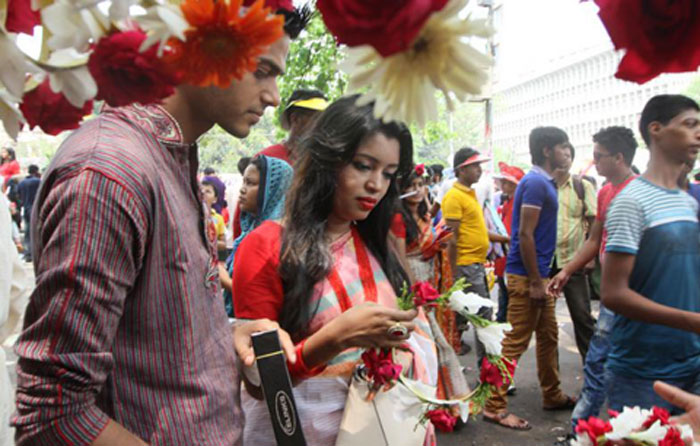Pahela Baishakh is here again, ringing out the old and brining in the new. Our greetings and best wishes to all on this first day of the Bengali year 1422.
Most calendars around the world have roots in one religion or the other. However, it is not so with the Bengali calendar. It centred around agriculture and taxes, and later business and trade transactions. Pahela Baishakh gradually became a cultural festival of joy for all. This festival is dear to the heart of all Bengalis. There are very few such non-communal festivals in the world.
This non-communal festival with bears the origins of Bengali culture, has been inspirational in various vital chapters of Bangladesh`s cultural and political history. In the sixties, Chhayanaut`s welcome to the new year at Ramna botomul, gave impetus to the Bengalis` movement for self determination. It inspired the liberation war in 1971.
In the early stages, the Pahela Baishakh festivities were rural-based. It gradually spread to the cities. Chhayanaut ushers in the new year at Ramna botomul. The Charukala faculty of Dhaka University bring out a parade, the mongol shobhajatra. And there are big and small fairs scattered all over.
There are Baishakhi fairs and cultural programmes in the divisional and district towns too. The businessmen open their hal khata, to wind up transactions and accounts for the year and open their new books. Girls and boys come out in an an array of colour. There is a feat of traditional dishes. There is an exuberance everywhere.
The new year, or noboborsho, means new hope, new dreams and new pledges. Let us all pledge to build Bangladesh as a happy, prosperous and peaceful country. We hope that the prevailing political crisis is resolved and a peaceful democratic environment is restored.

